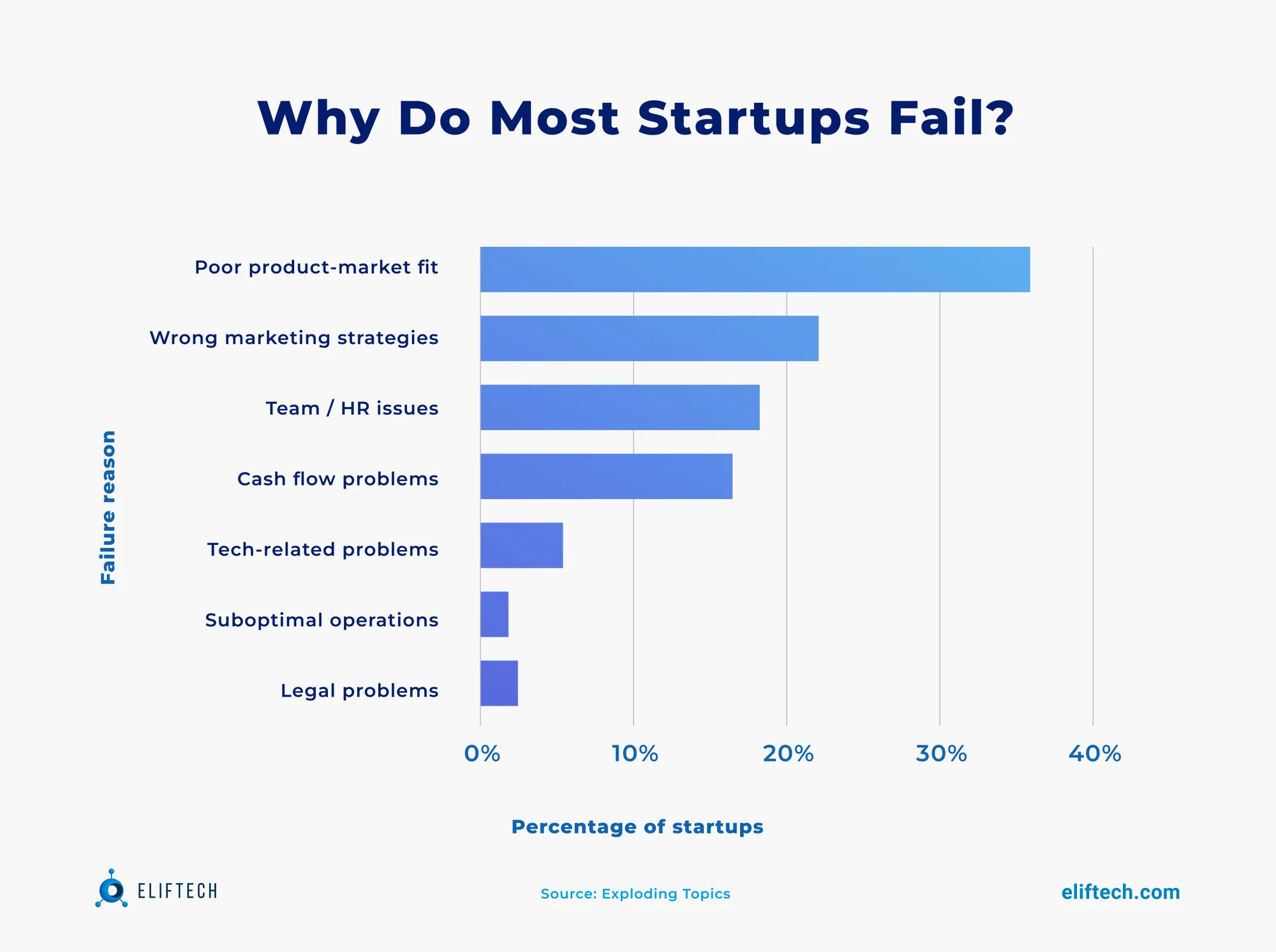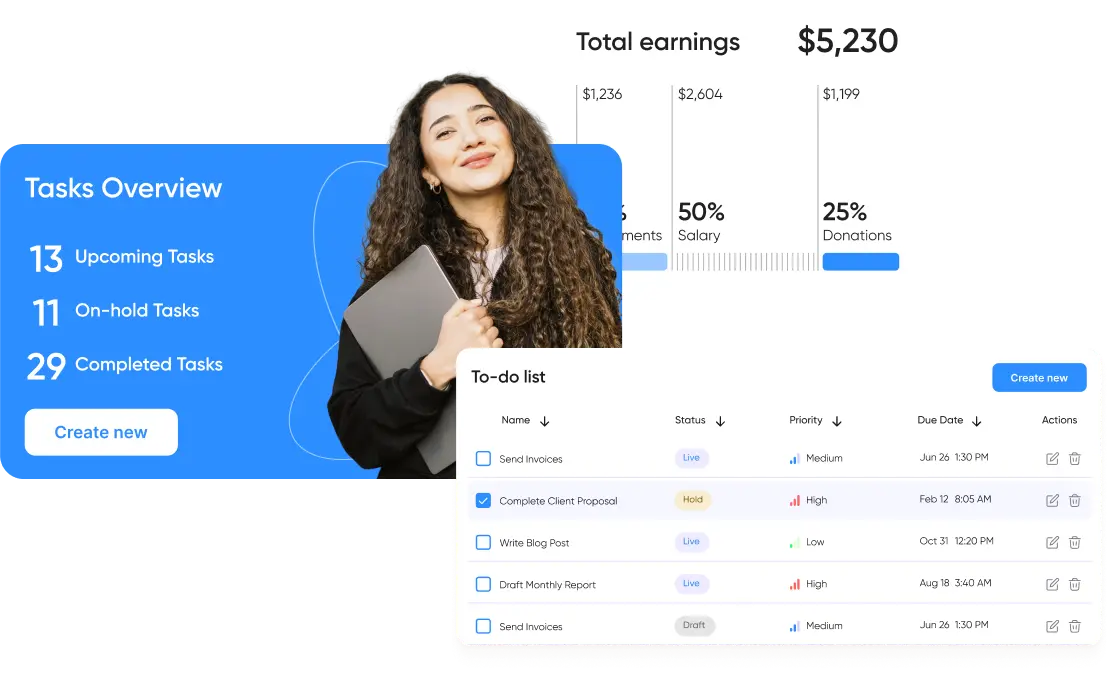Startup
Top 5 Startup Threats to Avoid with AI Sentiment Analysis
Leading a startup to success is in many ways similar to a typical Halloweenish horror movie – there’s a house haunted by insecurities, existential threats, and competitors, and not everyone manages to make it to the end. In fact, 90% of all startups fail, and as many as one-tenth do so in the first year of jumpscares. The reasons are manifold, and there’s no single method to avoid them all; however, apart from the operational stuff like HR and regulatory challenges, there’s a whole block of threats that boil down to one question.
That question is, "Is the startup in touch with reality"? This one covers the common challenges that range from defining a niche, setting up marketing, attracting investors, making strategic decisions in the first several years, and so on. And for all these, AI sentiment analysis is a great solution.
The Threats
Taking the “haunted house of startups” analogy one step further, who are the monsters inhabiting it? It turns out the leader is (ominous drum roll) poor product-market fit, soaring high up on the list at 34%, according to fresh data.

This is followed by wrong marketing strategies (message, content, audience, channel), and only then do you get things like HR, tech, or legal problems.
At the same time, the category of cash flow problems depends on many diverse factors (adoption, investors, and the like). A major part of the reasons why these factors may not be favorable can also be handled by touching grass with proper sentiment analysis – a.k.a. capturing insights in the wild.
Let’s look at the top 5 we’ve seen startups complain about.
#1 Developing the Wrong Product
The threat: What if we’re all wrong about the customer’s pain points?
We’ve already mentioned the product-to-market gap above. Another research has found that as many as 42% of startups fail due to misreading the market demand. Developing the wrong product is about the most horrible thing that can happen, and there’s a fine line between success and failure here. Sometimes, it’s about a single feature or value proposition point since (let’s be honest) in today’s interconnected world, there are hardly truly unique ideas anymore.
Interestingly, Google has provided a number of such misreadings for posterity to study from – from Google+ to Glass and more. While to the behemoth that is Google, these are just meme fodder they can afford, to a startup, such things are potentially fatal.
The solution: By systematically analyzing and interpreting the sentiments expressed in customer feedback, social media conversations, and online reviews, startups gain a nuanced understanding of the emotions, preferences, and pain points of their target audience. This granular insight enables startups to discern trends and patterns that might otherwise remain hidden, preventing them from making assumptions based solely on anecdotal evidence (or the CEO/founder’s personal enthusiasm). Startups can then align their product development, marketing strategies, and customer engagement efforts with accurate, data-driven insights, ensuring they remain agile and responsive to genuine market needs while avoiding the pitfalls of misinterpretation.
#2 Failing to Interest Investors / Secure Reputation
The threat: What if we’re not seen as trustworthy enough?
Okay, not everyone needs investment or external funding; bootstrapping is a thing (at least in the beginning).
However, whether or not a startup intends to attract VC, reputation is vital. Seeing as how VCs lose their investment in 30-40% of cases during the scale-up stage of a startup, they review the reputation and promises meticulously. Those who choose to invest in not-yet-established businesses will then monitor the market sentiment related to whatever the startup is poised to do (as opposed to the startup itself).
Meanwhile, bootstrappers need financial prudence, investing in their reputation while it’s practically still the MVP that’s hitting the market. Customer feedback in these cases is aggregating fast, especially in B2C, and keeping track of it allows not only to resolve negative sentiment before it escalates but also to be truly agile with what direction the company takes in the next quarter or year.
The solution: Startups can leverage AI sentiment analysis on social media as a dynamic tool to bolster their reputation among customers and investors. By closely monitoring online sentiments expressed in reviews, social media, and other digital platforms, startups can promptly respond to customer concerns, address issues, and showcase their dedication to delivering exceptional products and services. Positive sentiment trends can be highlighted to investors, demonstrating a strong customer base and the startup's commitment to satisfying market needs.
#3 Flawed Partnerships and Co-marketing
The threat: What if our partnerships define us in the wrong way?
It’s a common phenomenon for startups to seek partnerships based on who’s available and not who’s truly beneficial. The results can be threatening – for example, a tech startup basing its entire identity on supporting a major platform only to discover that it is being pushed out of the market, etc. In fact, 60-65% of strategic partnerships fail in the long run.
The same can be said about co-marketing efforts. Without honestly assessing the general trends in the industry, a startup may find itself putting all the eggs in the wrong basket.
The solution: By analyzing sentiments related to existing partnerships and collaborations, startups can evaluate the effectiveness of these endeavors and identify areas for improvement. This data-driven approach ensures partnerships align with positive market perceptions and resonate with target audiences. Sentiment analysis can also aid in selecting partners whose values and sentiments align with the startup's brand, enhancing the authenticity and potential impact of joint marketing efforts. By understanding sentiment trends around co-marketing campaigns, startups can make agile adjustments to optimize messaging, targeting, and overall strategy.
#4 Marketing Not Closing the Loop
The threat: What if our marketing team is stabbing in the dark?
Ideally, marketing should rely on a closed loop between brand communication and target audience feedback. In reality, though, getting a holistic picture of public perceptions is tough; SEO, email, and other specialists typically rely on channel-specific data and pursue channel-specific goals. Meanwhile, analysts are given tasks that typically have to do more with the competition than the overall market.
Of the failed startups, 22% are found to have marketing problems; at the same time, as of 2023, customer feedback is not as hard to come by as it is to analyze. Scraping the social media landscape can be tedious but worthwhile: reviews, reactions, comments, and the like.
The solution: By comprehensively analyzing customer feedback, social media interactions, and online reviews with AI sentiment analysis on social media, startups can gain invaluable insights into how their products or services are perceived in the market. This information allows startups to tailor their marketing messages to align with customer sentiments, addressing pain points and showcasing features that resonate positively. Furthermore, sentiment analysis aids in identifying emerging trends and shifts in customer preferences, enabling startups to stay ahead of the curve with innovative offerings.
#5 Competitors (Always Up To Something)
The threat: What if our competitors are two steps ahead in what we’re developing now?
Unlike the previous challenges, competition is statistically more likely to become a problem after 3-5 years of being in business. This is the stage where the former “blue ocean” is becoming reddish, with more businesses either simply jumping on the bandwagon or perfecting the offer in detail.
The solution: By analyzing sentiments expressed in online discussions, news articles, and social media conversations about competitors, startups can uncover valuable insights into their rivals' strengths, weaknesses, and market perception. This real-time monitoring allows startups to identify competitive trends, product launches, and shifts in customer sentiment that might impact their strategies. Additionally, sentiment analysis aids in benchmarking the startups' performance against competitors, helping to refine positioning and messaging.
Automating AI Sentiment Analysis on Social Media
The possibility of automating sentiment analysis started with teaching algorithms to scrape the web and understand human speech in something called Natural Language Processing (NLP).
Within the realm of sentiment analysis, NLP takes on a critical role. It begins by preprocessing the provided text, which involves tasks like eliminating common words ('and,' 'the,' 'is') and segmenting the content into smaller units known as tokens – akin to breaking down sentences into individual words.
NLP's primary function is categorizing these tokens into sentiments, classifying them as positive, negative, or neutral. This classification relies on algorithms and linguistic rules, which have been developed to identify the emotional connotations associated with words.
In essence, NLP serves as the driving force behind sentiment analysis, extracting meaningful insights from textual data and providing valuable perspectives on the emotional landscape within language.
Conclusion
AI sentiment analysis holds a pivotal role for startups, offering a window into the minds and emotions of their customers that can shape critical business decisions. This understanding empowers startups to fine-tune their offerings, messaging, and strategies in alignment with customer preferences and pain points. Whether identifying the features that elicit positive reactions or swiftly addressing negative sentiments to enhance customer satisfaction, sentiment analysis provides actionable insights that guide startups toward more customer-centric approaches.
Moreover, AI sentiment analysis on social media can contribute to strategic partnerships and investor relations, as startups armed with data-backed insights can confidently communicate their understanding of market sentiments, improving their credibility and attractiveness to potential collaborators and backers. These possibilities allow to avoid the common scares that haunt startup founders throughout the first years of the business.
For an assessment of what the ElifTech team can do to help your company harness AI sentiment analysis, feel free to contact our experts for a chat.
Browse our case studies and get actionable insights to drive your success
See more
